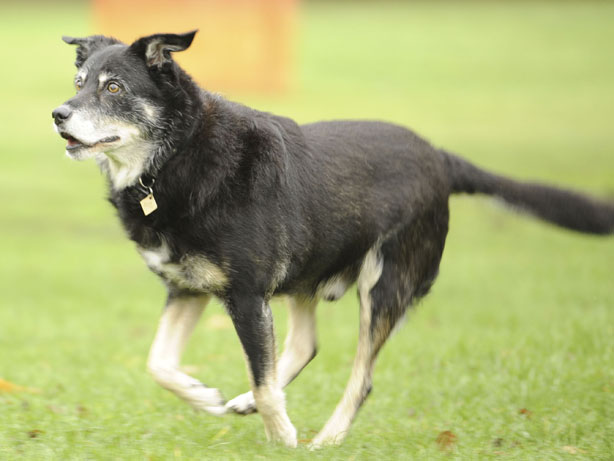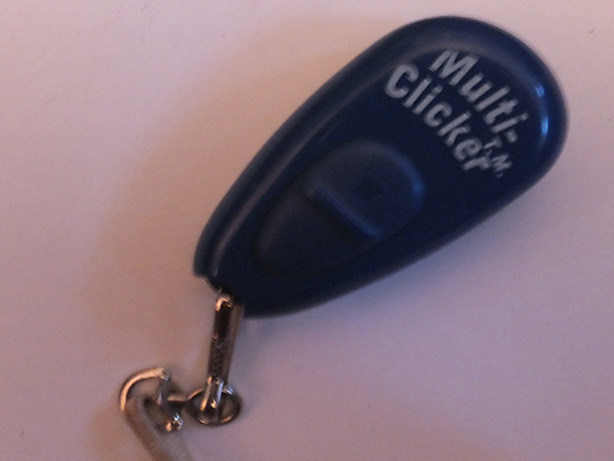
Vets United In The Valleys
Against the background of the Competition and Markets Authority review into veterinary services, veterinary staff in Valley Vets, Wales are striking for fair pay and improved conditions. Valley Vets staff are members of the British Veterinary Union, a branch of Unite, established in 2010, and the practices are owned by VetPartners, a corporate entity with a portfolio of 650 practices in the UK and more in France, Spain, Portugal, Germany and Ireland. In addition to first opinion practices, VetPartners owns referral practices, a small animal veterinary nursing school, an equine nursing school, laboratories, a research dairy, a locum agency and pet crematoria.
UK law changed in 1999, allowing non-vets to own practices which resulted in 35% of all practice sites being owned by corporate concerns within a decade of the amendment of the Veterinary Surgeons Act 1966. It is estimated that 60% – 70% of UK veterinary sites will be in such ownership by 2027.
All vets are commercial entities. They need to make profit in order to function. However, the increasing acquisition of practices at all levels by corporate entities reduces choice, not only for clients but for staff who no longer have discretion over charging and who themselves struggle on comparatively low wages. Independent vets are being driven out of practice because they are restricted by legislation in their ability to purchase supplies whilst corporations are not, and they simply cannot apply economies of scale
Independent vets could choose, for instance, to levy a high mark up on food and toys in order to discount the true cost of neutering or dental care. Staff in Valley Vets cite an example where they were obliged to bill clients £10 for a fluorescein eye stain strip that cost the practice just £1.
Veterinary staff wages are usually much lower than their clients imagine, especially when terms and conditions are taken into account. Lowest paid staff may be on minimum wage which is why 93% of the Valley Vets employees participated in the strike ballot and 94% voted in favour of striking.
Unionisation and strikes in veterinary practice are not yet common, but they may not only result in improved conditions for staff but for clients and their animals too.
The “them and us” is not vet versus client but corporate greed versus fairness and decency.
Happy Birthday Gary Larsen
 Ah, Gary Larsen, the acceptable face of anthropomorphism! His degree was in communications but he probably could not have anticipated that his cartoons would express so much to so many about the relationship between humans and other animals.
Ah, Gary Larsen, the acceptable face of anthropomorphism! His degree was in communications but he probably could not have anticipated that his cartoons would express so much to so many about the relationship between humans and other animals.
Interestingly, his day job while he was first submitting cartoons for publication was as a cruelty inspector for the humane society in Seattle. sadly, he retired thirty years ago at the age of 44 having been syndicated worldwide. Although his cartoons are no longer available on mugs and greetings cards and he objects to his cartoons being reproduced online, he does run a New Stuff website where you can see, in typical Larsen fashion, how a clogged pen led to him discovering digital art.
Anyone interested in anthrozöology, or just zoology (or anthropology for that matter) could do worse than by starting with Gary Larsen’s Far Side cartoons.
Thank you Gary – nothing like learning and laughing.
Worst In Show?
 It has long been known in insider circles that the UKKC have been struggling with attendance at shows. Numbers are down and that is also reflected in a downturn in registrations overall.
It has long been known in insider circles that the UKKC have been struggling with attendance at shows. Numbers are down and that is also reflected in a downturn in registrations overall.
It has now been reported that most KC events are loss-making. There has been a history of technical problems and poor customer service and the website is much worse than before its re-design. It seems to prioritise images over easy navigation and I have had to resort to Googling a page to get to it and bookmarking the coefficient of inbreeding calculator because it is so difficult to find via the site.
The KC admitted as much when it stated in its 2023 Annual Report “Clearly we have much to do and communicating better with all of our stakeholders is high on our list of priorities”.
The desperation for funds is palpable when one is bombarded with e-mails trying to sell insurance and “deadlines” are extended time and time again when they are ignored.
It is hardly surprising that show attendance is down (although not for Crufts). It is expensive to register and expensive to attend. There is a still a great deal of concern regarding breed health in some breeds. The KC has done a lot to improve the situation since Pedigree Dogs Exposed aired in 2008 but it is nevertheless woefully inadequate. In spite of all their protestations, some judges are still not adhering to their own breed standards as the French bulldog that won its group at Crufts 2024 demonstrated. Perhaps in response, the KC has announced that brachycephalic dogs will need a BOAS grading for entry to Crufts in 2025, but this is tinkering around at the edges. Other countries have gone much further and simply banned breeding for extreme conformation; technically it could be argued that it is already illegal in the UK under the AWA 2006. Health tests are not mandatory for all dogs registered by the KC.
The KC pre-tax loss amounts to £798,000 for 2023. It reminds to be seen how it will cope, but it seems unlikely that it will implement truly effective measures to combat poor breeding practices as it cannot afford to alienate the dyed-in-the-wool members who fund it.
King’s Speech Stutters
 No one could disagree that the incoming government has its work cut out. Months before the election, the Labour party did everything it could to manage expectations – aka prepare everyone to be disappointed.
No one could disagree that the incoming government has its work cut out. Months before the election, the Labour party did everything it could to manage expectations – aka prepare everyone to be disappointed.
What no one could have foreseen is just how completely the now incumbent government would ignore animal welfare. When the Kept Animals Bill was dropped by the Tories in June 2023, there was an attempt to revive it which failed in the Commons by 73 votes.
This means that the attempt to enhance the offences for dogs worrying livestock and to crack down on import offences has now been lost – again. The loss of the Bill also affects other companion animals, animals in zoos and primates kept as pets.
Labour support for the revival has now melted now that they are no longer in opposition. How easy to attack the other party but how quickly that was abandoned once the party obtained a majority of 174, albeit with a mere 33.8% share of the overall vote.
In announcing a massive 40 bills, the Labour government could make room for a bill covering its leader’s much vaunted hobby of football, but nothing on the desperately needed reform of the Veterinary Surgeons Act 1966 and the tragically ineffective Dangerous Dogs Act 1991.
The honeymoon period for this government was always expected to be brief; it has probably lost a lot of friends already by its acts of omission and, indeed, omission of Acts in the field of animal welfare.
200 Years And Now What For The RSPCA?
200 years ago, campaigners and social reformers managed to get legislation enacted that led to the foundation of the Society for the Prevention of Cruelty to Animals. Later granted a royal charter, the organisation appointed its own inspectors and by the 1830s undertook private prosecutions where it deemed that cruelty had been enacted on animals.
It was only in 2021 that the RSPCA announced that it will no longer undertake private prosecutions, decades after other charities abandoned the practice. Whatever the publicly stated reasons for this, the fact is that serious concerns arose when the RSPCA were the main prosecutor of animal welfare offences in England and Wales routinely using private prosecutions against vulnerable individuals and when evidence was weak with little, if any, public interest. This was often supported by the police. There was also growing anecdotal evidence that it was difficult to get the RSPCA involved in cases of serious abuse, rejected in the majority of reviews that the RSPCA have on Trustpilot as just an example.
The RSPCA turned over more than £5M in 2022 and two of its employees earn between £70,000 and £90,000 each. Since its inception, the RSPCA had a blanket opposition to hunting and scientific use of animals. It has also been mired with governance problems since the outset, one of its founder members and first honorary secretary being the Rev Arthur Broom who was obliged to stand aside from the rôle after being declared bankrupt. Another founder member, Lewis Gompertz who was avidly anti-hunting, was also obliged to resign, although a large amount of anti-Semitism was undoubtedly involved too.
Concerns were raised in parliament over political campaigning as the RSPCA oppose the current badger cull which is helping to investigate and prevent the spread of bovine TB. A judgement was raised against them by the Advertising Standards Authority when it concluded that their anti-cull advertisement in the Metro newspaper was misleading following more than 100 complaints from members of the public.
Chief Inspector to the Crown Protection Service, Stephen Wooler published a report in September 2014, highlighting the serious shortcomings in the way in which the RSPCA was acting and the unavoidable conflict of interest engendered in it serving private prosecutions. The question came back to parliament too years later when the RSPCA had made no progress in implementing its conclusions and in 2018, the Charity Commission issued the RSPCA with an Official Warning regarding governance concerns.
Controversy arising over the RSPCA overtly supporting political lobbying groups even led to the Archbishop of Canterbury ending the precedent of patronage by refusing formal association. No doubt many donors who gave to the charity expecting that their money would help to prevent abuse of animals were horrified when the RSPCA spent £300,000 in prosecuting members of the Heythrop Hunt.
There are many instances of real animal cruelty in the dog world, not least puppy smuggling, back street breeding, irresponsible ownership and the breeding of dogs with disabling conformation. Where are the RSPCA in those campaigns?
Dog Days Of A Dying Government
 As the remnants of the outgoing government struggle to accrue support ahead of next month’s general election, they have ditched the Dogs (Protection of Livestock) (Amendment) Bill (farmers don’t pull in enough potential votes) in favour of the populist Pet Abduction Act.
As the remnants of the outgoing government struggle to accrue support ahead of next month’s general election, they have ditched the Dogs (Protection of Livestock) (Amendment) Bill (farmers don’t pull in enough potential votes) in favour of the populist Pet Abduction Act.
Of course, both would be preferable.
The Kept Animals Bill was abandoned a year ago with the promise that individual legislation would be passed to cover its remit that could have protected billions of animals. That was after huge amounts of promises were broken with the abandonment of much of the 2021 Action Plan for Animal Welfare.
Companion animal abduction is rife and devastating for those affected. But then again, so it the harm caused to livestock by dogs. Perhaps we could have had both had the government not wasted so much time on yet more knee-jerk and totally ineffective legislation banning XL bullies.
Of course, livestock attacks and much theft are preventable with responsible ownership, including proper training and not leaving dogs unattended or with poor recall.
Buck Up Britain
 Poor conformation in dogs is a major reason that canine welfare is compromised and concerns have been voiced since the 1960s.
Poor conformation in dogs is a major reason that canine welfare is compromised and concerns have been voiced since the 1960s.
It beggars belief that 65 years later, the situation has only got worse, with many breeds of dog suffering hugely.
The Nordic countries are leading the way in tackling resistance to better breeding and purchasing practices. In Sweden, all dogs and cat breeders must be registered and if breeding three or more litters per annum or keeping 10 or more animals must hold a permit. Permits are recorded on a national database. The code of practice covering welfare is compulsory. It is illegal to breed dogs and cats that have genetic conditions such as inherited diseases, inherited disabilities or behavioural disorders.
Breeding dogs with extreme conformation is also illegal in the Netherlands, Norway and Finland.
Research from Sweden covering show judges, breeders, vets and owners of French bulldogs, Boston terriers, pugs, and English bulldogs and Cairn terriers reveals that there is still resistance to improving conformation in dogs that have the potential to suffer from BOAS.
Significantly, all respondents except for show judges were largely in favour of banning breeding brachycephalic dogs. Only 8.5% of the show judges involved in the study agreed with a partial or full ban. The study found that:
“The majority of show judges agreed fully or partly that it is essential to follow the breed standard even if it can be associated with health issues related to their physical appearance, while all other stakeholders mostly disagreed “.
Whilst it was mostly felt that breed standards should be based on knowledge about the relationship between health and conformity, significant numbers of participants from all categories surveyed disagreed that brachycephalia threatened dogs’ health, including 27.4% of judges of affected breeds. 59.3% of the show judges surveyed agreed, totally or partly, that it is essential to follow the breed standard, even if it is associated with health problems.
Breed standards and instructions have been altered in many kennel club to pay lip service to welfare, but the authors of the study felt that interpretations of, often vague standards, were subjective and may lead to promotion of anatomical exaggerations.
Just 57.7% of breeders of brachycephalic breeds were in favour of banning individual dogs from being bred compared to 87.5% of breeders of non-brachycephalic breeds. Nearly a third of of breeders of brachycephalic breeds disagreed that health problems related conformation posed a threat to the dogs’ health, possibly because clinical signs of distress have been normalised. 35.8% of the breeders of brachycephalic breeds disagreed with proposed improvements to welfare compared to 8.6% of the breeders of non-brachycephalic breeds.
More worryingly, the study found that the appearance of the dog was an important factor for owners acquiring a brachycephalic dog, in spite of consequential health concerns.
Until this is addressed, many dogs will continue to suffer and the UK is well behind in even making minimal improvements.
Carried Away
 I freely confess that I am somewhat depressed by electric cars. As a child, I had assumed that Concorde would have been the norm by the time that I became an adult and I never imagined that we would all be encouraged to drive round in milk floats, let alone be actually encouraged to regress to riding bicycles.
I freely confess that I am somewhat depressed by electric cars. As a child, I had assumed that Concorde would have been the norm by the time that I became an adult and I never imagined that we would all be encouraged to drive round in milk floats, let alone be actually encouraged to regress to riding bicycles.
However, I do have to admire the latest offering from Korean car manufacturer Genesis (me neither), the X Dog concept – for its fixtures and fittings rather than its engine. OK, so, even though I am a non-driver, my first consideration would be the engine but maybe other car manufacturers will realise the economic power of the dog owner market and bring out something similar. There is some evidence to suggest that dogs can be more settled and suffer less travel distress in EVs.
Basically, the hatchback is fitted with a box on top of which is a bed and heated dog cushion. It includes a built-in shower (attached to a 1.3 gallon, pressurised tank), dog-suitable hairdryer, pull-out ramp and storage compartments including 230V plug sockets. A leather collar and safety harness enable you to secure your dog to a secure anchor point while on the move.
Pretty cool huh?
My other car is a fly fishing Bentley.
(I wish)
Let’s Celebrate World Vet Day
 Ever moaned about your vet? You are not alone. Veterinary care can be expensive and it’s easy to overlook the fact that owning a companion animal is a privilege, not a right.
Ever moaned about your vet? You are not alone. Veterinary care can be expensive and it’s easy to overlook the fact that owning a companion animal is a privilege, not a right.
However erratic, access to the NHS which is largely free at source hides the true cost of human care. So it can be a shock when vet bills quickly reach three figures.
It might surprise you to learn that vets are not always paid very much. Vet students study for a minimum of 4 years and graduate with an average debt of £70,000. Starting salaries average £32,000 and 50+ hour weeks are standard, including anti-social hours and unpredictable hours.
Between 30% and 60% of vets are injured at work and injuries, even in small animal practice, can be life-changing.
Overheads for running practices can be very high and vets are legally bound by the Veterinary Cascade to prescribe drugs using a strict protocol which means that they do not always have control over what drug is offered.
Veterinary work can be very rewarding but also very stressful. Vets in the UK are 3-4 times more likely to commit suicide than the general population.
There are problems within the veterinary industry that the Competition and Markets Authority are currently addressing. However, in the meantime, give your vet a break. Take a breath before you are about to complain and consider matters from there veterinary staff member’s point of view.
It will make you both feel better.
If you are finding it difficult to take your companion animal to the vet book a Happy Vet Visit Course. Your vet will thank you for it and so will your companion.
Full Marks To EFRA
 The EFRA Committee has always been a champion for animal welfare and is now putting pressure on the government to enact some of the legislation that they promised originally in their manifesto.
The EFRA Committee has always been a champion for animal welfare and is now putting pressure on the government to enact some of the legislation that they promised originally in their manifesto.
The report acknowledges that it is not just missing legislation but improvement that is required to current legislation in addition to providing sufficient resources to police and enforce it.
In particular as far as dogs are concerned, they look at breeding, imports and illegal veterinary procedures. There is a recommendation that all breeders be registered, regardless of the number of litters that they produce. They also recommend reducing the number of litters produced annually to 2 before a licence is required.
There has been huge growth in canine fertility clinics which can operate without any regulation and with unqualified staff. They seem to be used mostly to produce dogs that have been bred so badly that they cannot mate or give birth without human intervention, in particular bull breeds and pugs. Some are performing illegal C-sections without a vet and some are advertising their services specifically for breeding aggressive dogs.
Thousands of dogs are being imported into the UK, many illegally on Pet Passports. Some have forged papers. There is a huge risk of importing diseases, including rabies, and there is concern that cases of brucellosis are increasing, with zoonotic transmission having occurred between an owner and a dog imported from Belarussia.
There are many very good recommendations in this report and it is to be hoped that some legislation can be enacted before the general election.





